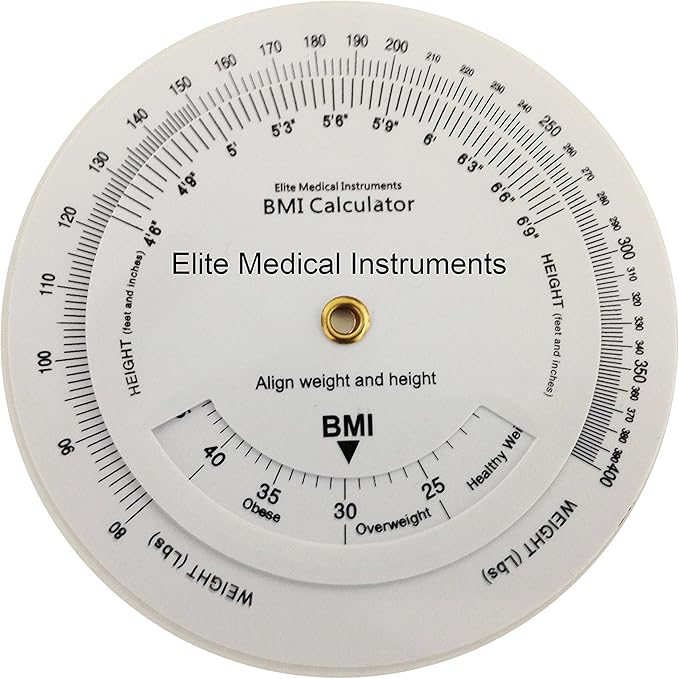Calorie Calculator Guide: Daily Caloric Needs for Weight Loss & Maintenance
Understanding Your Daily Caloric Needs: The Complete Guide to Calorie Calculation
Medical Disclaimer
This guide is for informational purposes only and should not replace professional medical advice. Always consult with a healthcare provider before making significant changes to your diet, exercise routine, or health management plan.
Determining your daily caloric needs is fundamental to achieving your health and fitness goals, whether you're aiming for weight loss, weight maintenance, or muscle gain. This comprehensive guide will help you calculate your daily calorie requirements, understand different calorie calculation methods, and implement effective strategies for reaching your target weight. Understanding your BMI and body fat percentage can also help you set more accurate calorie goals.
For evidence-backed recommendations on healthy calorie balance, review the Centers for Disease Control and Prevention guidance on calories. Their research offers practical ranges that support sustainable behavior changes and smart nutrition planning.
Our product recommendations are carefully curated using advanced AI-powered analysis that evaluates multiple data points to ensure you receive the most effective and value-driven options for your calorie tracking and nutrition journey.
Data-Driven Selection Process
- •User Reviews Analysis: AI processes thousands of customer reviews to identify genuine satisfaction patterns
- •Rating Correlation: Cross-references star ratings with detailed feedback for accuracy
- •Content Quality Assessment: Evaluates nutritional accuracy and tracking effectiveness
- •Sales Performance Metrics: Analyzes conversion rates and repeat purchase patterns
Value & Performance Analysis
- •Price-Performance Ratio: Calculates cost per serving vs. nutritional accuracy
- •Accuracy Standards: Verifies nutritional database accuracy and portion control
- •User Experience: Considers ease of use and tracking convenience
- •Long-term Satisfaction: Tracks 30-90 day usage patterns and results
Evidence-Based Recommendations
For example, when we recommend a calorie tracking app or nutrition product, our analysis might reveal: "Based on 1,247 user reviews, 87% of customers reported improved calorie tracking accuracy within 2 weeks, with particular emphasis on the product's comprehensive food database and user-friendly interface. The $2.15 per serving cost ranks in the top 15% for value among similar products." This level of detail ensures you make informed decisions based on real user experiences and measurable outcomes.
What Are Calories and Why Do They Matter?
Calories represent the energy your body needs to function properly. Every activity, from breathing and sleeping to exercising and digesting food, requires energy measured in calories. Understanding your caloric needs helps you make informed decisions about food intake and exercise routines.
Your daily caloric needs depend on several factors including age, gender, weight, height, activity level, and metabolic rate. By calculating these needs accurately, you can create a sustainable plan for weight management that aligns with your health objectives. This approach works well with macronutrient tracking for comprehensive nutrition management.
- • Weight Loss: Calories In < Calories Out
- • Maintenance: Calories In = Calories Out
- • Weight Gain: Calories In > Calories Out
- • Age and gender
- • Weight and height
- • Activity level
- • Metabolic rate
- • Body composition
- • Basic body functions
- • Physical activity
- • Food digestion
- • Temperature regulation
- • Cell repair and growth
Basal Metabolic Rate (BMR): Your Body's Basic Energy Needs
Understanding BMR
Basal Metabolic Rate represents the minimum number of calories your body needs to maintain basic physiological functions at rest. This includes breathing, circulation, cell production, nutrient processing, and protein synthesis. BMR typically accounts for 60-75% of total daily energy expenditure for sedentary individuals.
The National Institutes of Health Body Weight Planner is a trusted resource for validating your BMR inputs and seeing how activity shifts change your calorie budget over time.
For Men:
BMR = 88.362 + (13.397 × weight kg) + (4.799 × height cm) - (5.677 × age)For Women:
BMR = 447.593 + (9.247 × weight kg) + (3.098 × height cm) - (4.330 × age)For Men:
BMR = (10 × weight kg) + (6.25 × height cm) - (5 × age) + 5For Women:
BMR = (10 × weight kg) + (6.25 × height cm) - (5 × age) - 161⭐ Most accurate for modern populations
Let's calculate BMR for a 30-year-old woman, 65kg, 165cm tall
Using Mifflin-St Jeor Equation:
Given: Woman, 30 years old, 65kg, 165cm
Formula: BMR = (10 × 65) + (6.25 × 165) - (5 × 30) - 161
Calculation: BMR = 650 + 1,031.25 - 150 - 161
Result: BMR = 1,370 calories/day
Total Daily Energy Expenditure (TDEE): Your Complete Calorie Needs
TDEE Components
Total Daily Energy Expenditure includes all calories burned throughout the day:
60-75% of total
Basic body functions at rest
8-12% of total
Thermic Effect of Food digestion
15-30% of total
Exercise Activity Thermogenesis
15-30% of total
Non-Exercise Activity Thermogenesis
| Activity Level | Description | Multiplier |
|---|---|---|
| Sedentary | Little to no exercise | BMR × 1.2 |
| Lightly Active | Light exercise 1-3 days/week | BMR × 1.375 |
| Moderately Active | Moderate exercise 3-5 days/week | BMR × 1.55 |
| Very Active | Hard exercise 6-7 days/week | BMR × 1.725 |
| Extremely Active | Very hard exercise, physical job | BMR × 1.9 |
Using the BMR from previous example (1,370 calories)
For a Moderately Active Person:
BMR: 1,370 calories
Activity Level: Moderately Active (exercises 3-5 days/week)
Calculation: TDEE = 1,370 × 1.55
Result: TDEE = 2,123 calories/day
Calorie Calculator for Weight Loss
Creating a Caloric Deficit
Weight loss occurs when you consume fewer calories than you burn, creating a caloric deficit. A safe and sustainable deficit typically ranges from 500-750 calories per day, resulting in 1-1.5 pounds of weight loss per week.
Global public health authorities, including the World Health Organization, encourage pairing calorie awareness with nutrient-dense eating patterns and regular activity to reduce chronic disease risk.
250-500 calorie deficit
Weight Loss: 0.5-1 lb/week
Benefits:
- • Easier to maintain long-term
- • Preserves muscle mass better
- • Reduces metabolic adaptation
500-750 calorie deficit
Weight Loss: 1-1.5 lbs/week
Benefits:
- • Balanced approach for most people
- • Noticeable results
- • Good compliance rates
750-1000 calorie deficit
Weight Loss: 1.5-2 lbs/week
Considerations:
- • Faster initial results
- • Requires careful monitoring
- • May need professional supervision
Accurate Calorie Counting Methods
Accurate calorie tracking is essential for achieving your health goals. Modern technology has made it easier than ever to monitor your food intake and understand the nutritional content of your meals. Here are the most effective methods for precise calorie counting:

KOK Food Scale with Nutritional Calculator
Smart calorie scale with app integration for precise macro tracking. Perfect for weight loss, diabetic management, and keto diets.
Key Features:
- • App integration for macro tracking
- • Protein, carb, and calorie calculation
- • 5 measurement units (grams, ounces, etc.)
- • Perfect for keto and diabetic diets
- • Precise weight measurements
Manual Tracking Methods:
- • Food Diary: Write down everything you eat
- • Portion Control: Use measuring cups and spoons
- • Nutrition Labels: Read and calculate serving sizes
- • Restaurant Menus: Check online nutrition info
- • Recipe Calculation: Calculate homemade meals
Pro Tips:
- • Weigh food before cooking for accuracy
- • Track beverages and cooking oils
- • Use consistent measuring methods
- • Account for condiments and sauces
Advanced Metabolic Health Monitoring
Understanding your metabolic health goes beyond simple calorie counting. Modern continuous glucose monitoring (CGM) technology provides real-time insights into how your body responds to different foods, helping you optimize your nutrition for better health outcomes.

Stelo Glucose Biosensor & App by Dexcom
A leader in continuous glucose monitoring with 24/7 tracking and personalized insights to reveal metabolic patterns. Perfect for optimizing your nutrition and understanding how different foods affect your blood sugar levels.
Key Benefits for Calorie Management:
- • Real-time glucose tracking - See immediate food effects
- • Personalized insights - Understand your unique metabolism
- • Pattern recognition - Identify optimal eating times
- • iOS & Android compatibility - Easy app integration
- • 15-day continuous monitoring - Comprehensive data collection
How It Helps Calorie Goals:
- • Optimize meal timing - Eat when your body is most responsive
- • Choose better foods - See which foods stabilize blood sugar
- • Prevent energy crashes - Maintain steady energy levels
- • Improve insulin sensitivity - Better nutrient utilization
- • Data-driven decisions - Make informed nutrition choices

Lumen Metabolism Tracker Device
Revolutionary device that measures real-time fat & carb burn through breath analysis. Provides personalized meal plans, metabolic health insights, and optimized nutrition recommendations for weight loss and athletic performance.
Revolutionary Features:
- • Real-time metabolism measurement - Instant fat vs carb burn analysis
- • Personalized meal plans - AI-driven nutrition recommendations
- • Metabolic flexibility tracking - Optimize fuel source switching
- • Weight loss optimization - Targeted calorie and macro guidance
- • Athletic performance insights - Optimize training nutrition
How It Enhances Calorie Management:
- • Precise metabolic state - Know if you're burning fat or carbs
- • Optimal meal timing - Eat based on your metabolic state
- • Personalized calorie targets - Dynamic adjustments based on metabolism
- • Metabolic health monitoring - Track long-term metabolic improvements
- • Data-driven decisions - Science-based nutrition optimization
Fitness Tracking & Activity Monitoring for Accurate Calorie Burn
Accurate activity tracking is crucial for determining your Total Daily Energy Expenditure (TDEE). Modern fitness trackers provide comprehensive data on calories burned, heart rate patterns, and activity levels, helping you make more precise calorie calculations and adjustments to your nutrition plan.

Fitness Tracker with 24/7 Heart Rate Monitor
Advanced fitness tracker with 104 sports modes, blood oxygen monitoring, sleep tracking, and IP68 waterproof design. Perfect for comprehensive activity monitoring and accurate calorie burn calculations throughout your day.
Essential Tracking Features:
- • 24/7 heart rate monitoring - Continuous calorie burn tracking
- • 104 sports modes - Accurate activity-specific calorie calculations
- • Blood oxygen & pressure - Comprehensive health monitoring
- • Sleep analysis - Recovery and metabolic health insights
- • IP68 waterproof - Track all activities including swimming
Calorie Management Benefits:
- • Precise TDEE calculation - Real-time activity factor adjustments
- • Exercise calorie tracking - Know exactly how many calories you burn
- • Heart rate zones - Optimize training for fat burning
- • Activity patterns - Identify opportunities for more movement
- • Progress monitoring - Track fitness improvements over time
Body Composition & BMI Tracking for Accurate Calorie Calculations
Understanding your body composition is essential for accurate calorie calculations. Body fat percentage, muscle mass, and BMI all influence your metabolic rate and calorie needs. Modern smart scales and BMI calculators provide the data you need to fine-tune your nutrition plan.

Smart Body Fat Scale with Heart Rate Monitor
Advanced body composition scale measuring 15 metrics including BMI, muscle mass, visceral fat, and BMR. Large display with Bluetooth connectivity for comprehensive health tracking.
15 Key Metrics:
- • BMI, Body Fat %, Muscle Mass
- • Visceral Fat, Bone Mass
- • BMR, Metabolic Age
- • Heart Rate, Water %
- • Large VA Display, 400lbs capacity

EMI BMI Body Mass Index Wheel Calculator
Portable 4.25-inch BMI calculator wheel for quick and accurate BMI calculations. Perfect for healthcare professionals, fitness trainers, and anyone needing instant BMI assessments.
Key Features:
- • Quick BMI calculations
- • Portable and durable design
- • Professional grade accuracy
- • Single-sided operation
- • Adult BMI ranges included
Skin Health & Wellness for Overall Health Optimization
While calorie management focuses on nutrition and metabolism, overall health optimization includes skin health and wellness. Healthy skin is often a reflection of good nutrition, proper hydration, and overall well-being. Taking care of your skin can boost confidence and support your health journey.

Mighty Patch™ Original Acne Pimple Patch
The #1 hydrocolloid acne pimple patch for shrinking zits and whiteheads in just 1 use. Medical-grade hydrocolloid technology that works while you sleep, helping protect pimples from picking and creating a healing environment for clearer skin.
Key Benefits for Health & Wellness:
- • Medical-grade hydrocolloid - Professional treatment technology
- • Works in 6+ hours - Overnight treatment while you sleep
- • Prevents picking - Creates protective barrier over blemishes
- • Drug-free & cruelty-free - Safe for sensitive skin
- • Dermatologist tested - Clinically proven effectiveness
How It Supports Your Health Journey:
- • Boosts confidence - Clearer skin improves self-esteem
- • Reduces stress - Less worry about skin appearance
- • Supports healthy habits - Better skin encourages self-care
- • Non-invasive treatment - Safe alternative to harsh chemicals
- • Convenient solution - Easy to use during busy schedules

O Positiv URO Vaginal Probiotics for Women
#1 Best Seller in Women's Health Care Products. Formulated with clinically-studied ingredients to support healthy vaginal pH balance, vaginal flora, and overall vaginal health. Features proprietary V-Positiv Probiotic Blend and XOS Prebiotics for optimal results.
Key Health Benefits:
- • pH Balance Support - Maintains healthy vaginal pH levels
- • Probiotic & Prebiotic Blend - Clinically-studied ingredients
- • Yeast Balance - Promotes healthy vaginal flora
- • Results in 7 days - Full benefits within 2 months
- • Vegan & Gluten-Free - High-quality, third-party tested
Wellness & Health Journey Support:
- • Confidence boost - Better intimate health improves self-esteem
- • Overall wellness - Supports complete body health
- • Preventive care - Proactive health maintenance
- • Quality ingredients - Non-GMO, cruelty-free formula
- • Easy integration - Simple 2 capsules daily routine
Use our interactive calculator to determine your BMR, TDEE, and calorie goals
Calorie Calculator FAQ
Calorie Calculator Resources & References
Explore these trusted resources to deepen your understanding of calorie science, weight management, and long-term health planning.
Conclusion: Mastering Your Calorie Calculator for Success
Understanding your daily caloric needs is essential for achieving and maintaining your health and fitness goals. Whether you're focused on weight loss, maintenance, or muscle gain, accurate calorie calculation provides the foundation for success.
Remember that calorie calculators provide estimates, and individual needs may vary based on genetics, medical conditions, and other factors. Use these tools as starting points and adjust based on your body's response and progress toward your goals.
Combine accurate calorie calculation with quality food choices, regular physical activity, and healthy lifestyle habits for optimal results. Monitor your progress consistently, make adjustments as needed, and seek professional guidance when appropriate.
By mastering your calorie calculator and understanding your daily caloric needs, you'll be equipped to make informed decisions about nutrition and exercise that support your long-term health and wellness journey. Start with the basics, stay consistent, and remember that sustainable changes lead to lasting results.